Saul Dreier has lived many lives in his 99 years in this world. The Holocaust survivor was born in Poland in 1925 to a secular Jewish family in Krakow and lived a normal life for a child of that time. Though Saul went to school at a local gymnasium, Jewish education was a key component of his life, and he attended supplementary Jewish classes after school.
All of this ended when he was just 14 years old, the day Hitler’s German hordes invaded. No more school, no more Jewish classes. No more childhood at all, in fact.
This was the story Dreier shared at his 99th birthday party, thrown by the 1,000 Jewish elementary boys and girls of the Lubavitch Educational Center (LEC) Jewish day school in Miami. With party hats, balloons and frosted birthday cake on hand, the children presented Saul with gifts, birthday cards and tribute videos congratulating him on reaching this milestone.
Dreier is no stranger to the students of LEC, this being the second consecutive year that the Florida school has put on a birthday bash for the Holocaust survivor. Speaking to the children, he tells Chabad.org, is vital for him.
“When I was 14 years old, the war started. I couldn’t learn,” he reflects. “They [the Nazis] were chasing me, trying to kill me. Study is the most important thing in life, and this is the lesson I impart to the students.”
Yet Saul’s story is not just about things lost but about the life gained as well. Dreier is the founder of the Holocaust Survivor’s Band, for which he plays the drums and which recently performed at the White House. Indeed, he brings his drums along on each of his visits to LEC.
“Students get knocked down all the time, but from Saul, the children learn about incredible resilience,” explains LEC principal Rabbi Yakov Garfinkel. “It is a totally different experience for them when Saul is the one asking them to continue learning in his honor, to stick it to Hitler by continuing to study Torah. ‘Learn Torah first, and we will come out on top,’ he teaches them.”
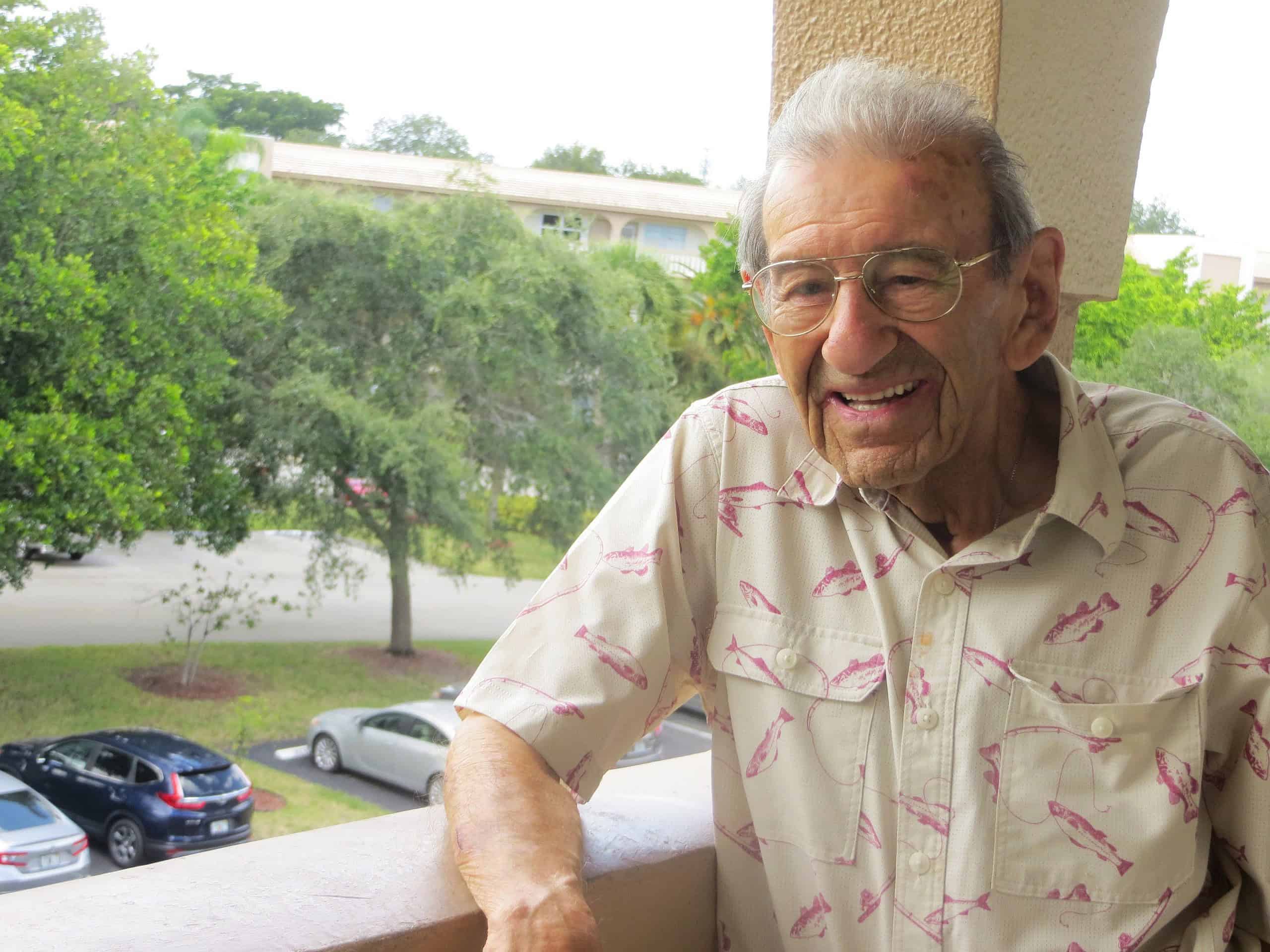
Stolen childhood
At 14, Saul was just a little older than his LEC audience when the war required him to become the man of the house. After his father, a Polish army officer, was captured and imprisoned, Saul had to provide for his mother and sister. The teenager took to clearing snow and ice to earn money, and also worked as a delivery boy for a local bakery, using the bicycle that his aunt had gifted him for his bar mitzvah.
In 1941, at the age of 16, Saul and his family were forced to relocate to the newly formed Krakow ghetto, where living conditions were harsh and dehumanizing; multiple families were crammed into single apartments, and food supplies were terribly scarce.
One day, as he returned home from work, Saul witnessed German soldiers taking his mother and forcing her towards the Płaszów train station. Now, only his sister, grandmother and uncles remained.
A fleeting glimmer of hope appeared for the young boy when one day, a gaunt man approached Saul on the street. It turned out to be his father, who explained that he had escaped from prison.
Unfortunately, their reunion was brief. Shortly after, Saul was in a nearby pharmacy when he saw the Germans taking away all his remaining family. Saul watched as his grandmother, who was disabled and unable to move, was shot at Zgody Square.
A few weeks after his family’s capture, Saul was arrested and sent to Płaszów labor camp. About a year later, he was transferred to a small work subcamp in the Zabłocie district, adjacent to Oskar Schindler’s famous factory. Then, he worked at the NKF Factory, repairing radiators for Nazi aircraft.
In July 1944, Saul was put on the train to Auschwitz. However, instead of arriving at the notorious death camp, the train unexpectedly took him to Mauthausen, where he stayed for a few weeks. He was then transferred to Gusen and subsequently to a concentration camp in Linz, Austria, where he worked as a welder in the Haubwergstate Factory.
After he was liberated by American troops, Saul spent five years recuperating, moving through a series of displaced persons camps in Italy. It was in these DP camps, having lost all that he had known—and surrounded by people who’d lived through similar or worse—that Saul decided to teach himself to play the drums.
Dreier immigrated to the United States in 1949. Though he was without family and means, inside him burned a strong desire to make a new life.
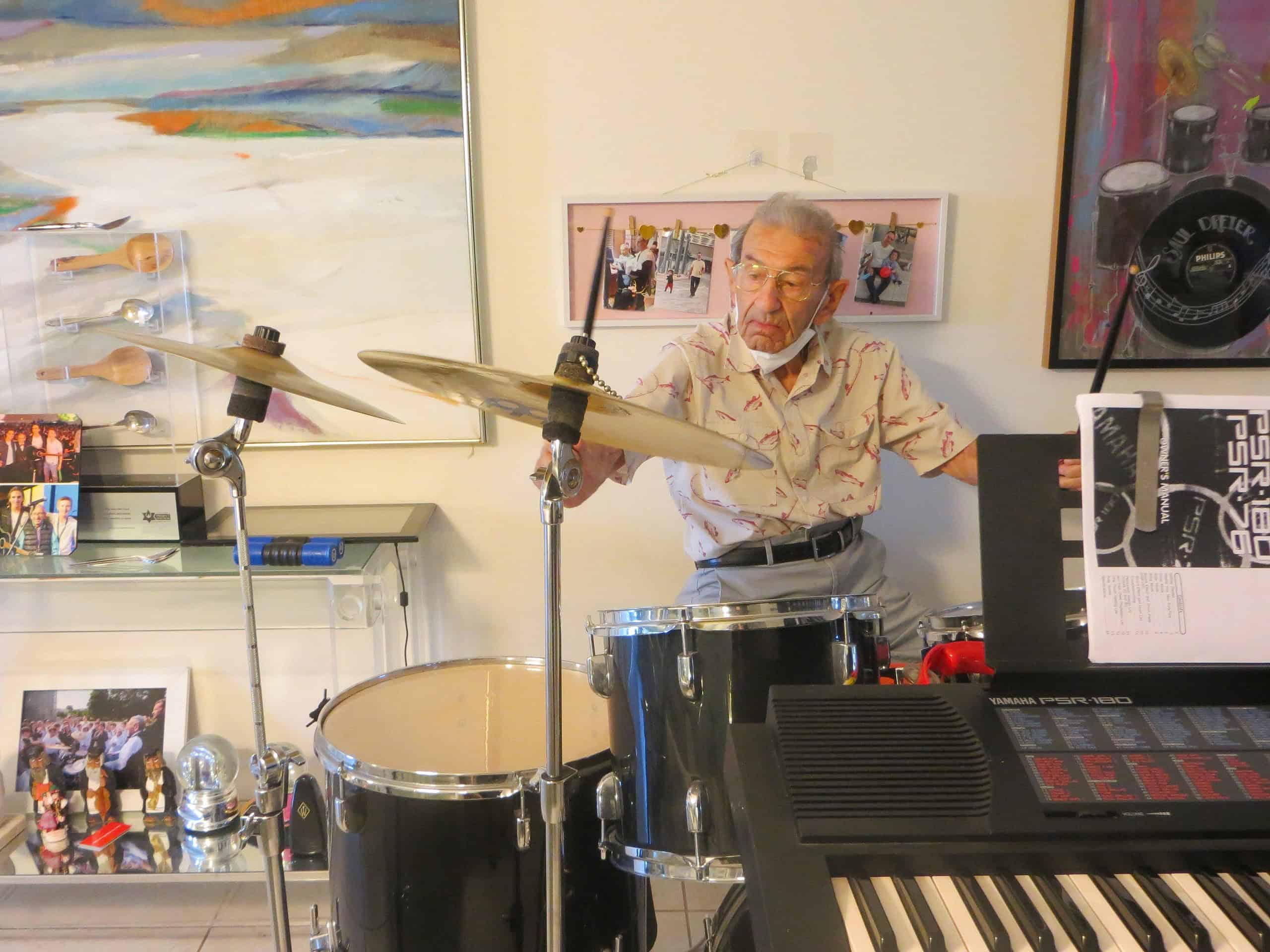
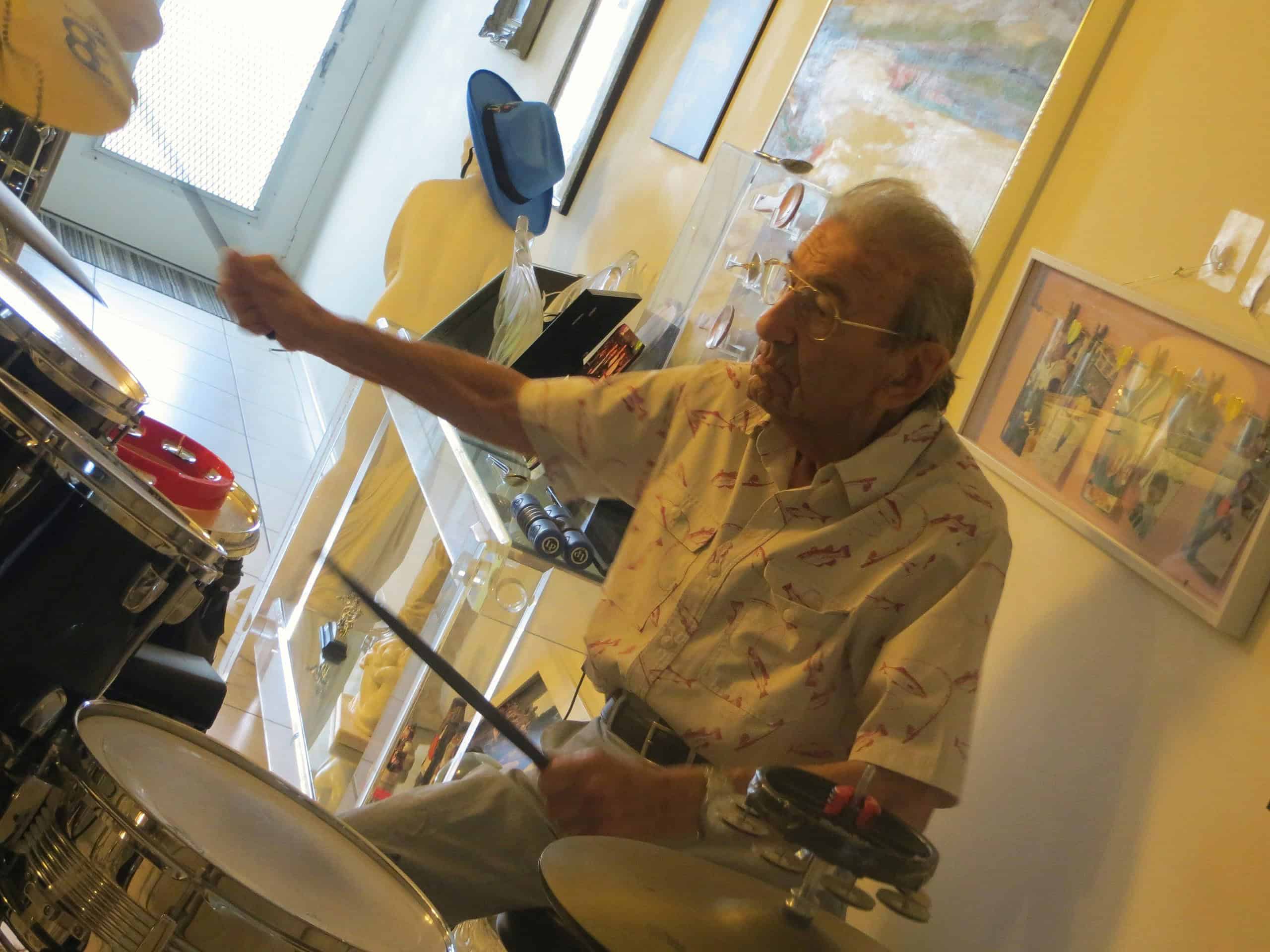
New beginnings
Saul never forgot what happened to him and his family in Poland. “Now I’m over 90, but my stolen youth is still in me,” he says. Refusing to cede his life to the Nazis, Saul was determined to make it his own, at each step of his odyssey telling himself: “I’m going to go and do it my way.”
Saul’s first job in the United States was as a welder in Brooklyn, N.Y. In 1957, he met his wife, Clara. They married and share four children, eight grandchildren and three great-grandchildren. Dreier later started a successful business and moved to South Florida. At the age of 65, he discovered that he had stomach cancer and chose to retire. Saul has fought off multiple bouts of the illness in the years since, as well as dealt with other health issues.
Despite both his troubles and achievements, at the age of 89, he decided that it was time to begin a new career. Remembering the drums he learned to play back in his DP camp days, Saul and a few friends launched the Holocaust Survivor’s Band.
“I told my wife I’m putting together a Holocaust survivor band, and she told me I was meshuga,” Saul says with a laugh, using the Yiddish word for “crazy.” “I sat down with my rabbi to ask his opinion, and he told me I was crazy, too.”
He went ahead with it anyway, and over the past decade, the Holocaust Survivor’s Band became a huge hit, performing with many Jewish music stars; gaining coverage from media outlets like NBC News, The Atlantic and USA Today; and becoming the subject of a documentary film, “Saul & Ruby’s Holocaust Survivor Band” (2020).
Saul has continued to face hardship in recent years, including more health issues and his wife Clara’s passing in 2016, but he forges on with a strong sense of determination.
Indeed, it was his performance at LEC’s annual dinner in 2023 that connected him with the school. At the time, Saul was presented with honorary diplomas from both LEC’s middle and high schools. Having chosen never to allow himself to be defined by what the Nazis did to him, he can now even count himself the graduate of a Jewish school.
Back to school
When Garfinkel, LEC’s principal, first heard Saul speak, he knew his message carries valuable lessons that classrooms are unable to deliver. “From his first visit here, it was clear that Saul is incredible,” Garfinkel says. “It has had an incredible impact on the children.”
On his first visit, Saul engaged with the students in various settings—from classroom visits to a larger assembly. Garfinkel notes how Saul seamlessly shared invaluable lessons and insights with the students, making his first visit an impactful experience filled with “priceless moments.”
“LEC aims to instill in our students the values of learning from every individual. Witnessing Saul, a Jew who showcased the unwavering dedication of the Jewish people while continuing to serve God with joy has ignited a sense of admiration among our students,” school director Rabbi Benzion Korf says.
In April of 2023, Saul was picked up in a limousine and brought to LEC for what turned out to be a surprise 98th birthday party. With confetti glittering in the air and Chassidic music blaring, Saul stepped onto the red carpet and was presented with a massive birthday card from the children.
It was the start of a beautiful tradition.
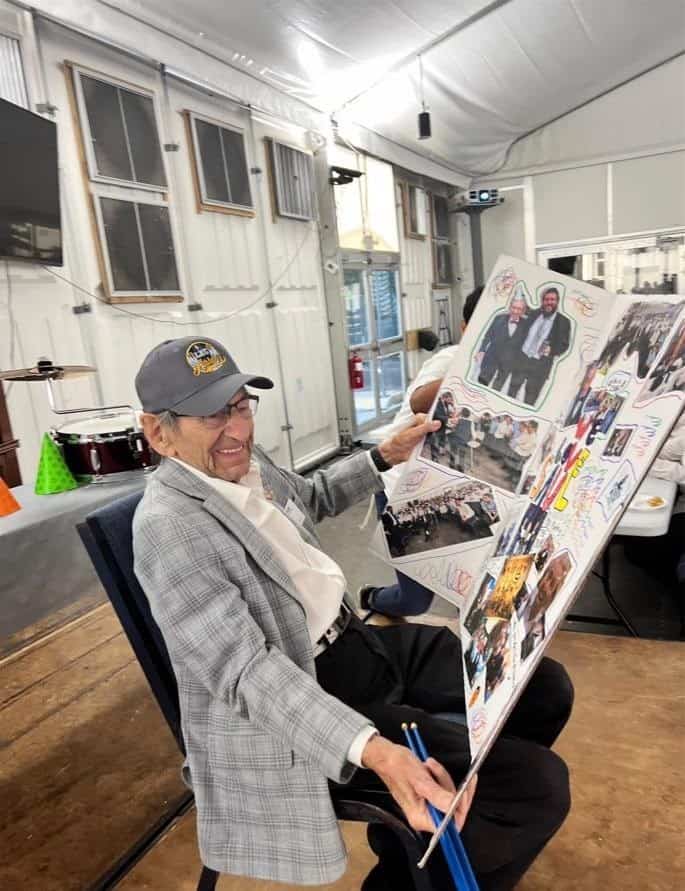
Saul’s recent birthday bash
This past year was an especially difficult one for Saul, and so the birthday party was pushed off a bit. But no health issues were going to keep him away, especially considering the change in Jewish life following the Oct. 7 terrorist attacks in Israel.
“There was no question this year had a different feeling,” Garfinkel explains. “The students have now seen Jew-hatred openly, and it’s a little bit more real to them. Yet for Saul, who of course has seen much worse in his life and has come through it, to remain resilient and strong with a goal in mind was very powerful for them.”
Despite his issues with illness, Saul has an important message for the students and staff at LEC. “I always want to go to school. I’ve enjoyed my time there very much. It’s amazing.”
Saul says he is grateful for the opportunity to spend time with the students, detailing how close he has become to them. He acknowledges that he’s also learned a thing or two during his time in a Jewish school, like beginning to don tefillin on a daily basis at the age of 99.
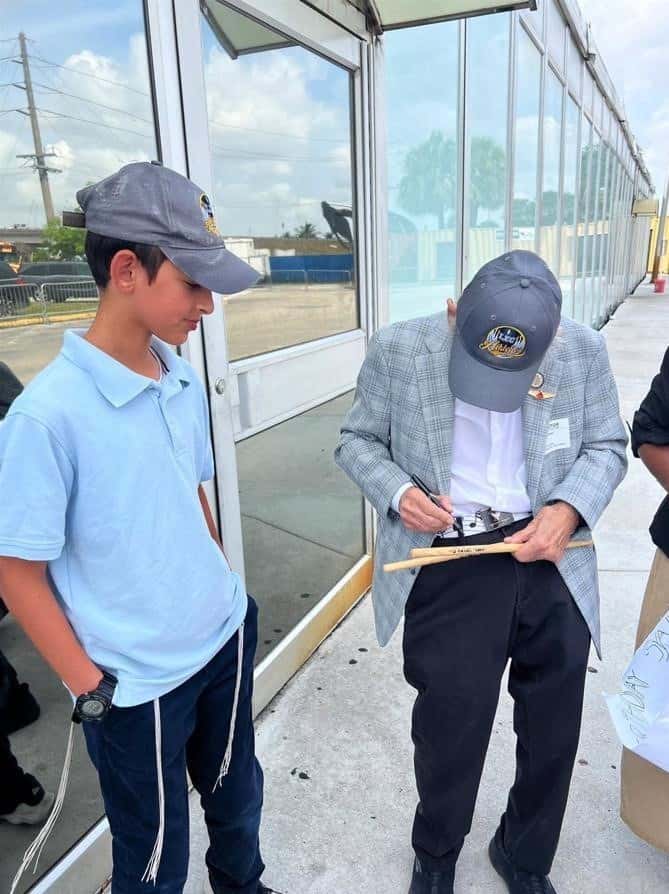
“The Rebbe [Rabbi Menachem M. Schneerson] teaches that each person is a messenger and must actively contribute to making a difference in this world,” Korf says. “We try to instill this in our students, but what can illustrate that more than them being the messengers to help a 99-year-old Jew put on tefillin?”
Saul now dons tefillin every day, adding yet another chapter to his incredible life.
He sees it all simpler than that: “I have been taking back the years that Hitler stole from me.”
Reprinted with permission by Chabad.org/News.

























